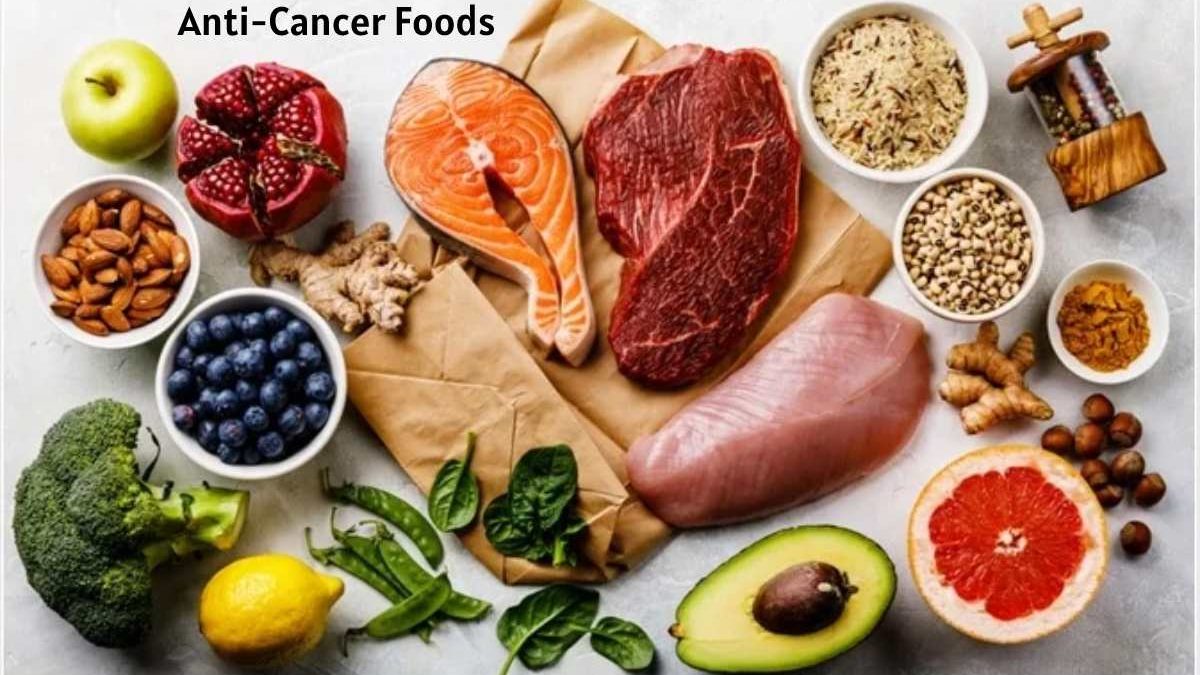Table of Contents
Introduction
Here are the top anti-cancer foods: A person’s risk of developing cancer increases depending on several factors, including genetic and environmental factors, such as ageing, over-smoking, excessive exposure to sunlight and chemicals, which are often uncontrollable.
But you can still reduce your cancer risk by dieting healthy and eating anti-cancer foods rich in antioxidants.
Garlic
Garlic contains ingredients such as sulfur, arginine, low-liquid sugars, flavonoids and selenium, which may help reduce the risk of different types of cancer.
Eating garlic regularly can help prevent cancer cell growth.
A recent study found a close relationship between raw garlic intake and lung cancer prevention.
Another study reported that eating large amounts of raw or cooked garlic protects against stomach cancer and colorectal cancer.
Green Tea
Green tea contains some compounds that include cytokine and antioxidants that help reduce the development of cancer cells and prevent free radicals from damaging cells.
According to one study, green tea shows protective effects of cancers of the digestive tract, breast, lung and prostate.
Intake 3 to 4 cups of green tea a day can help you reap its anti-cancer benefits.
Tomatoes
Tomato fruits are a good source of lycopene, a powerful antioxidant that helps fight cancer by boosting the immune system and protecting the body’s cells from damage.
Tomatoes are also one of the essential foods rich in vitamin a, vitamin c and vitamin e, which prevent free radical damage in the body.
In a 2013 study printed in the nutrition and vitamins sciences journal, researchers found that men who ate tomatoes, whether raw or cooked, were less likely to develop prostate cancer.
We recommend that you eat the equivalent of one cup of tomato slices a day to enjoy its anti-cancer benefits.
4. Berries
Berries are foods rich in anti-cancer phytonutrients and antioxidants, as they prevent free radical damage that can harm cells, causing many severe diseases, including cancer.
It also contains vitamins c and k, manganese and dietary fibre, which also help reduce cancer risk.
A study showed that berries are fruits against oral, ovarian, colon, liver, prostate, lung, skin and breast cancer.
5. Ginger
Ginger also helps reduce the risk of different types of cancer due to its antioxidant properties that prevent cancer cell growth.
A study showed ginger’s ability to fight ovarian cancer.
A 2012 study also found that ginger is effective in preventing prostate cancer.
Ginger also prevents the appearance of colorectal, lung, breast, skin and pancreatic cancer.
6. Cruciate Vegetables
cruciferous vegetables, such as broccoli, cauliflower and turnips, contain beneficial nutrients, including vitamin c, vitamin k and manganese.
Eating cruciferous vegetables reduces the risk of cancer, as it contains sulforaphane, which has anti-cancer properties, significantly inhibits the growth of cancer cells and stimulates their death.
Sulforaphane in broccoli has been shown to help prevent breast cancer, colorectal cancer and prostate cancer.
We recommend that you eat approximately 2 cups of boiled broccoli three times a week.
7. Spinach
Spinach is a rich source of fibre, folic acid and carotenoids, which may help protect against cancers of the mouth, throat, pancreas, lung, skin and stomach.
You can eat the equivalent of one cup of spinach per week add it to salad, soup, fruit juice or vegetable juice.
8. Pomegranate
Pomegranates contain a good amount of antioxidants to reduce the risk of prostate cancer.
This rich fruit also contains a combination of phenolates, flavonoids, anthocyanins and tannate, which help modify the body’s cellular biochemistry.
Add this delicious fruit to your morning meal, fruit juice, or fruit salad to fight cancer.
9. Walnuts
walnuts are healthy foods that contain a good amount of polyphenols. And also, phytochemicals, antioxidants, and anti-cancer.
A study has shown that walnuts help prevent breast, prostate and skin cancer.
Therefore, You can eat about seven walnuts a day, which can help protect against cancer.


